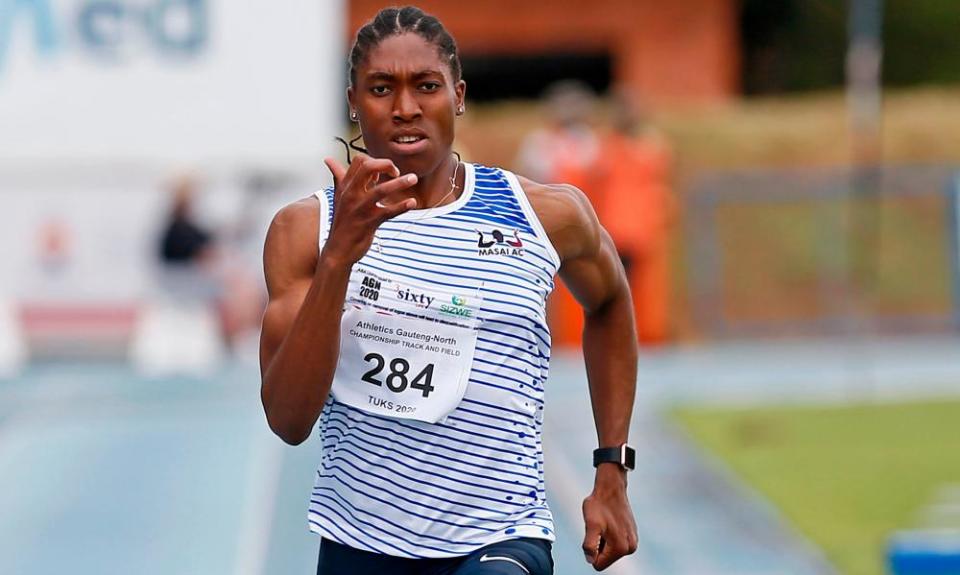Caster Semenya launches final bid to save career and defend Olympic title

The double Olympic 800m champion Caster Semenya has filed an application to the European court of human rights in a final bid to save her career and overturn the ban on her defending her title at Tokyo.
Semenya, 30, has twice failed to overturn controversial World Athletics regulations requiring women with high testosterone to take medication to compete internationally between 400m and a mile.
Related: World Athletics accused over 'abusive sex testing' of athletes from global south
On social media on Thursday she confirmed she would try for a third time. “I hope the European court will put an end to the longstanding human rights violations by World Athletics against women athletes. All we ask is to be allowed to run free, for once and for all, as the strong and fearless women we are and have always been.”
The South African was almost unstoppable until World Athletics implemented a new policy for athletes with differences in sex development (DSD) that compelled them to reduce their testosterone levels to less than 5 nmol/L if they wanted to compete in elite events between 400m and a mile. It argued the policy was justified because more than 99% of females have around 0.12-1.79 nmol/L of testosterone in their bodies. DSDs are in the male range of 7.7-29.4 nmol/L.
In 2019, the court of arbitration for sport upheld that policy, saying it was fair because DSD athletes, including Semenya, had a significant advantage in size, strength and power from puberty onwards because of their elevated testosterone levels.
A subsequent appeal failed and last November a Swiss federal tribunal said the World Athletics policy was “necessary, reasonable and proportionate” to ensure fair competition in women’s sport. “Based on these findings, the Cas decision cannot be challenged,” the tribunal said.
“Fairness in sport is a legitimate concern and forms a central principle of sporting competition. It is one of the pillars on which competition is based.”
In March last year, Semenya announced she intended to compete over 200m at the Tokyo Olympics – a distance for which she would not need to take any medication. However, she ended 2020 ranked 165th in the world, despite many leading athletes skipping the year due to the coronavirus pandemic.
To be able to compete in Tokyo, she would have to run a qualifying time of 22.80sec – more than half a second faster than her current best of 23.49.
Semenya’s lawyers confirmed they would ask the court to find that Switzerland had failed to protect her against the violation of her rights under the European convention on human rights.
“While the timeline of the application remains to be determined by the court, Caster remains ever hopeful that she will soon be allowed to return to the starting line in the 800m at international competition. Caster’s indomitable spirit continues to be a source of inspiration to all those fighting alongside her for the equality and dignity of women throughout the world.”

 Yahoo Finance
Yahoo Finance 